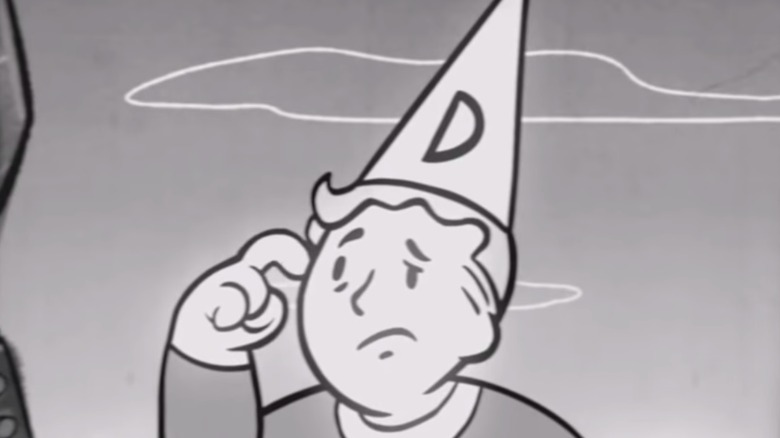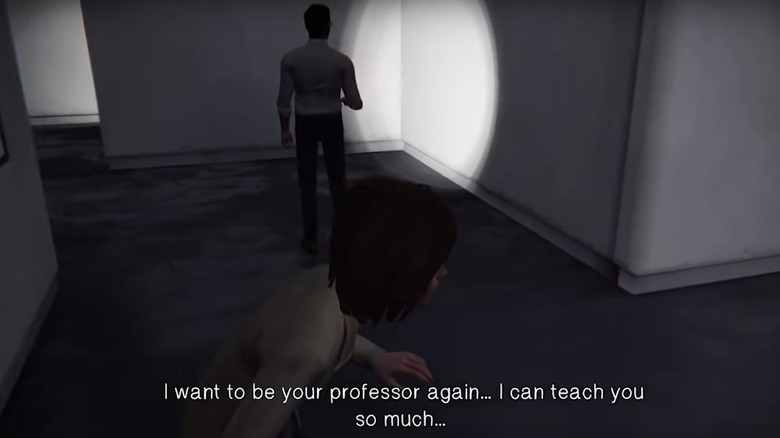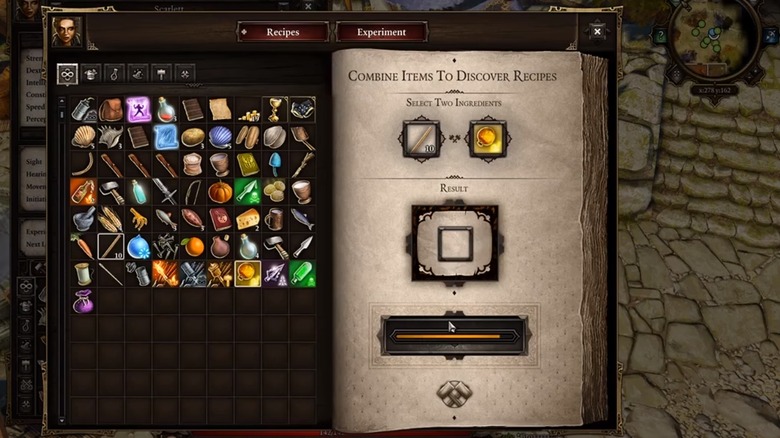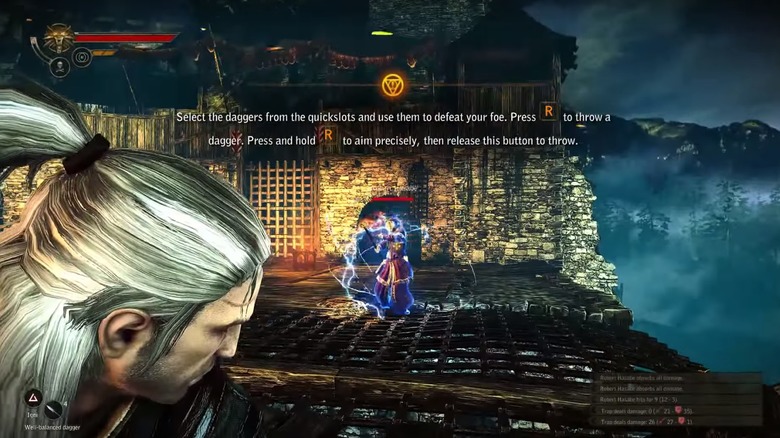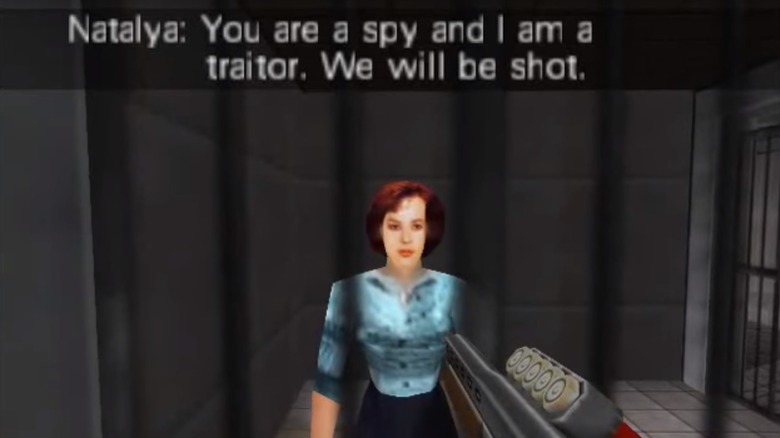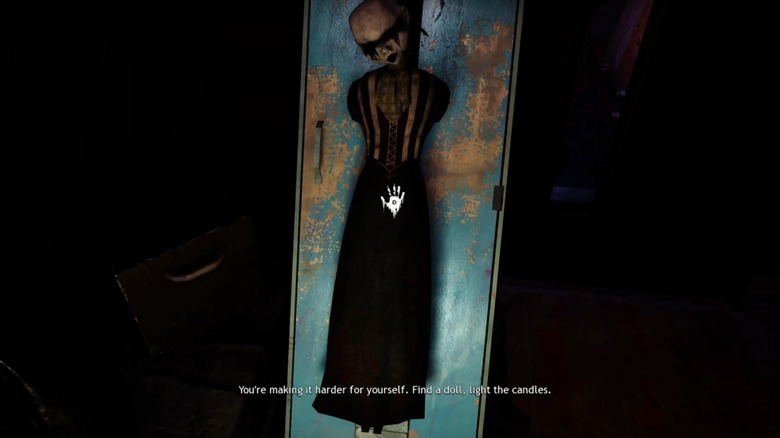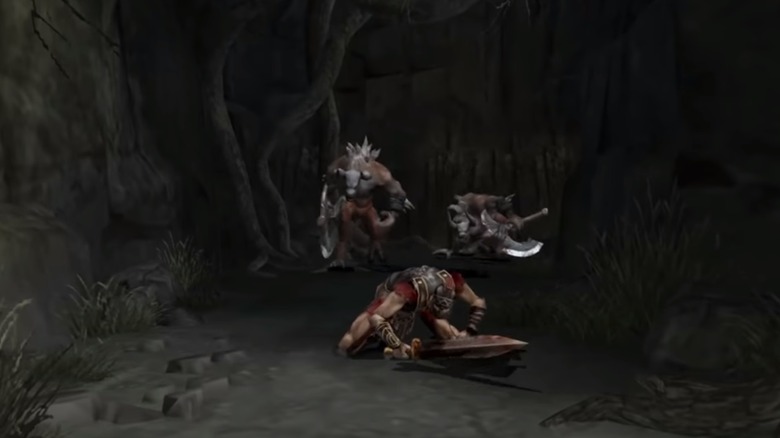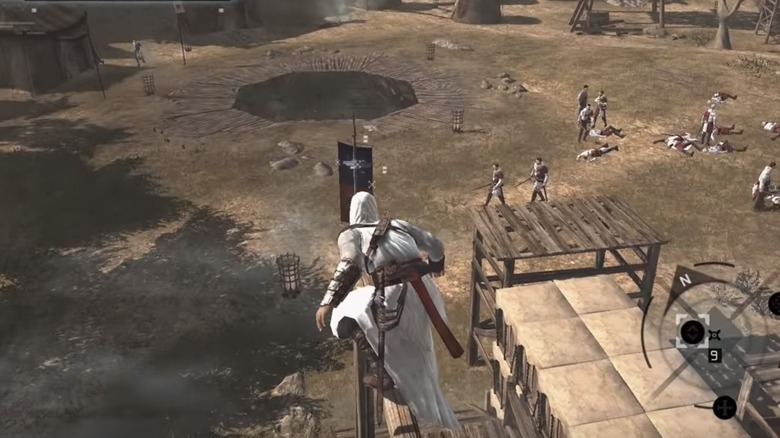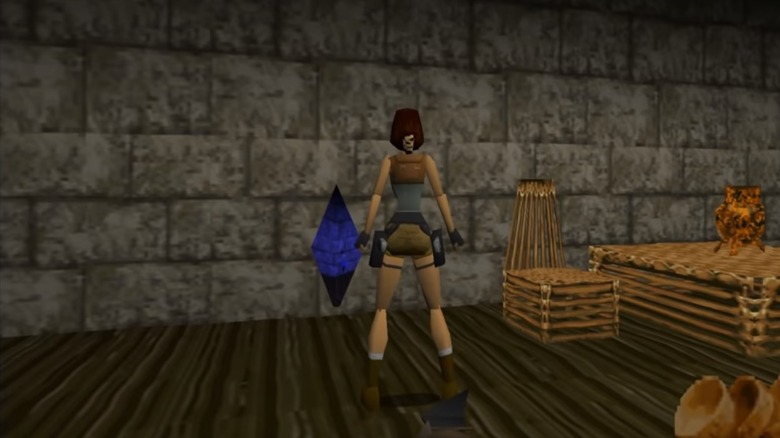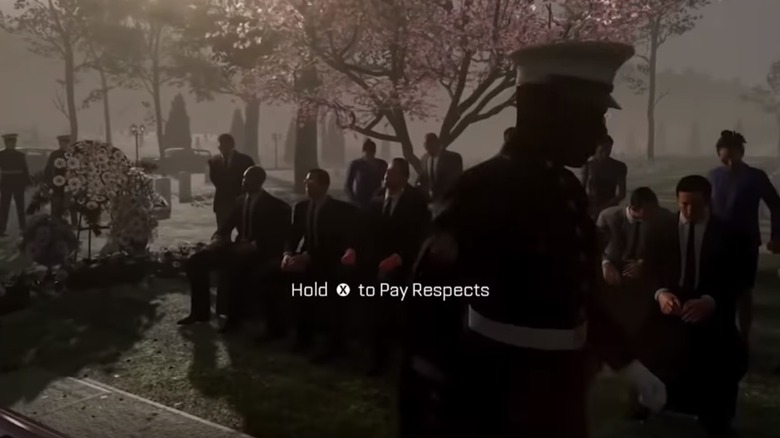Stupid Things That Games Need To Stop Making Players Do
Some gaming mechanics are relatively universal through all genres. The WASD approach to walking is a default most gamers expect to find when they sit down to play a new game on a computer. Having some sort of upgrade system in place for weapons, gear, or skills is also commonplace and often needed in order to keep a game interesting. But there are some things that developers seem to love that gamers just can't stand. These are the things that, for one reason or another, have made their way into normal gaming culture, despite the fact that they're loathed by most of the community.
Whether their prevalence is due to convenience for the developers or simply lack of knowledge about the discontent these commonalities cause, these things need to make a quick exit from gaming. After all, you can only watch a mandatory cutscene before a big boss fight so many times before you eventually start to hate the game itself. Though we're sure to find even more annoyances like these in the future, here are some of the stupidest things that games need to stop making players do.
Forced stealth needs a forced exit
When playing a game like Assassin's Creed or Hitman, players expect extensive stealth levels. After all, it's difficult to be a deadly and unnoticed assassin without a little stealth every now and then. And while these sections may be difficult, they're a big part of why gamers enjoy these particular games. This is what they signed up for. But when a stealth section is thrown at you in an otherwise non-stealthy game, it can put you off balance. Not only will the surprise of stealth leave you a bit confused, but it might get under your skin in a big way, since you're suddenly finding yourself playing a game you didn't sign up for.
Sometimes, having stealth sections in a game that doesn't revolve around stealth can make sense, even if it isn't necessarily expected. A first person shooter, for example, could organically implement these elements into their gameplay mechanics. But when you're playing a game like Life is Strange, where your experience is largely based on decisions and dialogue, stealth may be an unwelcome surprise. This is particularly true when the forced and out-of-place stealth section is an automatic fail situation. These surprise sections are already difficult enough without adding the element of automatic mission failure the second you're spotted. Developers could at least have the decency to give us an option to run away from our problems.
Hard-to-avoid crafting
There's a reason why games like Minecraft have exploded in popularity in recent years. The ability to take raw materials and create new items through crafting allows gamers to utilize their imaginations. And while constructing new worlds and new gear can be exciting, it's not necessarily something that interests everyone. Luckily, there are games for people who aren't quite as "craft oriented" as others.
Unfortunately for those who don't enjoy crafting, this element can often come up in games that are otherwise focused around other mechanics. When the sudden need to create an item in order to progress in a game comes about, it can feel a bit like a betrayal. After all, you didn't buy a first person shooter in order to spend hours gathering materials and turning them into blueprints for a keycard. You picked up a first-person shooter to shoot things. Though crafting isn't always mandatory, refraining from the practice in some games makes it almost impossible to progress. This is true of games like Divinity: Original Sin. Though mixing things up in predictable genres can be good, offering a viable bypass for those who aren't interested may be beneficial.
Never-ending tutorials
Very few people know the ins and outs to a game before ever playing it. This is why a brief tutorial can be helpful for learning the ropes. And while some people prefer to simply glance at the controller configurations, some context provided by a tutorial can be enlightening. Unfortunately, there are many games that have a mandatory tutorial at the beginning of the game that seems to go on forever. It's important for players to understand exactly how to play a game, but when every control and mechanic is info-dumped on you on the very first screen, chances are you'll remember very little of the information given to you.
On the other extreme are games that drop you into a world with no context or direction. And while this "try, die, and learn" approach can be frustrating, it also helps ingrain the controls into your mind quickly. Trial by fire can be very effective. As far as tutorials in games go, somewhere in between the "20-minute info-dump" and the "try, die, and learn" is the sweet spot. As game mechanics become more and more intricate, however, the long and unwanted tutorials are often the norm. A more effective way to convey information to gamers would be to space learning opportunities out throughout the first few levels of a game. This way the information is retained, and no one feels like they're in an instructional course rather than playing a game.
Escort quests
There are those who argue that Bioshock Infinite is just one long escort quest. But there is a glaring difference between an escort quest and a quest where other NPCs just happen to be present. Escort quests, by definition, are quests where players are forced to accompany an NPC to a certain location or goal. These NPCs are almost always defenseless and more often than not appear to be magnets for trouble. One of the many annoying things about escort quests is the fact that they usually require players to suddenly become excellent multitaskers. On top of normal gaming issues, you must also chase after an NPC who thinks running straight at a dangerous situation is a good idea. We're looking at you, Natalya Simonova.
The idea behind an escort quest is usually to give the player responsibility for someone other than their own character. It can also be used to introduce conflict with waves of enemies in lieu of a big boss fight. But more often than not, these quests only serve to frustrate players. The intelligence given to NPCs is often laughably unbalanced. If escort quests could be well-balanced, they may be able to serve a useful purpose in games. Elizabeth Comstock using her abilities to open rifts and provide resources in Bioshock Infinite is a perfect example of a useful NPC removing the stigma of the "escort quest" in favor of a complex and vital character.
Fetching and collecting quests
Whether it be RPGs, first person shooters, or puzzle games, there is something that seems to show up in almost every game: the fetch quest. These fetching or collection quests require players to go find a specific list of items hidden around a map or an entire world. Often, these items are difficult to find. In the case of a few particularly cruel games, their placement is randomized. This means that if a player dies while trying to collect all of the items, when they respawn, the items will no longer be where they were the first time. These types of quests can be useful in extending gameplay and getting players to explore all areas of the map, but they can also feel like time fillers.
When developers manage to implement fetch quests in unique and imaginative ways, they can be welcome additions to a game's story. Putting elements of a puzzle into the quest can help to reduce the monotony. Unfortunately, for the most part, fetch quests are exactly what the name suggests. You fetch things. No imagination or purpose to further the story. Just fetching. With how prevalent these types of missions are in games, you'd think developers would have come up with a better way to get players to explore the map. But by the looks of things, fetch quests will be here for a long time. You may need to go fetch some patience.
Unskippable cutscenes before a major fight
As technology continues to advance, game graphics are advancing as well. Announcement trailers for upcoming games often look like big budget movie trailers. This new ability to create gorgeous cinematics has led to some amazing cutscenes in games. These cutscenes add story value and depth to the game's world. But they can also be a bit time consuming, especially when the cutscene in question isn't skippable.
When faced with a cutscene that you're required to watch, gamers can often feel a profound sense of annoyance, especially when these cutscenes add little substance to the game. A cutscene that simply provides some witty dialogue or an excuse for developers to show off their graphics can feel a bit cheap. But even that can be semi-acceptable at times. The worst type of unskippable cutscene, is one that happens right before an important event in the game. Because these cutscenes often appear before a big fight or difficult section of gameplay, you'll probably be watching them over and over again. Once you inevitably die trying to complete the task at hand, you'll have to watch the cutscene once more. If you thought you could hate hearing the same boss music over and over again, imagine having to watch the same long cutscene fifteen times before you finally unplug the game in frustration.
Meaningless side quests
Gaming is supposed to be fun. By their nature, games were created to pass time and entertain people. When gaming is no longer fun, it turns into work. Meaningless side quests are some of the biggest perpetrators of this problem. This is especially true of mandatory side quests that do nothing to add to the main story of the game, but are required in order for your character to progress. Most often these quests were placed in the game in order to extend the playtime and make players feel like they're getting more game for their money. What many developers don't seem to realize is that a short game with excellent content is much better than a long game devoid of actual substance.
Not all side quests are meaningless. There are the moments in a game where your progress can be thwarted by a quest that, while not incredibly entertaining, does provide some important story information. These quests, though not ideal, still have value in the gaming world. However the quests where you are forced off the path of forward progression can be enough to turn you off to a game. Filler quests that give you a meaningless task to complete just for the sake of filling up empty game space can feel more like busy work than actual quality game content.
Save checkpoints without manual saves
In the early days of gaming, save checkpoints were commonplace. Because space on memory cards was limited, the ability to save whenever you felt like it wasn't the norm in all games. Today, gamers are used to being able to save whenever they'd like to. This can come in handy when you know a particularly challenging section of the gameplay is coming up. You can save your game in order to avoid having to start an entire section over again if you fail. But this isn't always the case.
There should be no reason a game doesn't allow players to save their game whenever they want. Auto-saving features can be a lifesaver in games where you're easily distracted. But even auto-saving should only be used as a backup to manual saves. The ability to save when you want gives you room to explore different outcomes and options in gaming. But some games today still lack an option to save when you'd like. One of the most notable games to recently come onto the scene with a limited save feature is Bioshock Infinite. Because players had no control over when the game was going to save, large chunks of progress could often be lost when a gaming session had to be cut unexpectedly short. With modern technology where it is, all games should come with the option to save when you want. At the very least, a "save and quit" option should always be present.
Quick time events
The love-hate relationship that gamers have with unskippable cutscenes goes back as far as gaming itself. The immense annoyance unskippable cutscenes can provide has already been explored in this article. But there's another element that makes cutscenes all together awful. This annoyance is known as the quick time event.
Quick time events are small interactive moments that occur during cutscenes or cinematics that would normally play out on their own with no player interference. The idea behind these QTEs makes sense. Instead of bombarding players with long cutscenes that they have nothing to do with, give them some ability to control what happens. In theory, this is a great idea — after all, you're playing a video game, not watching a movie. But these QTEs often occur without any warning and can be a bit jarring. When a cinematic in a game begins, most players relax a bit so that they can enjoy the scene unfolding before them. When your screen suddenly prompts you to interact in order to move the scene along or ensure your character's success, it can be a little annoying. Often times, these QTEs have you interacting in such a small and insignificant way that it feels like an empty effort to encourage player interaction over something they largely have no control over. A better option would be to either make the scene a full cinematic or allow the gamer to play through it.

